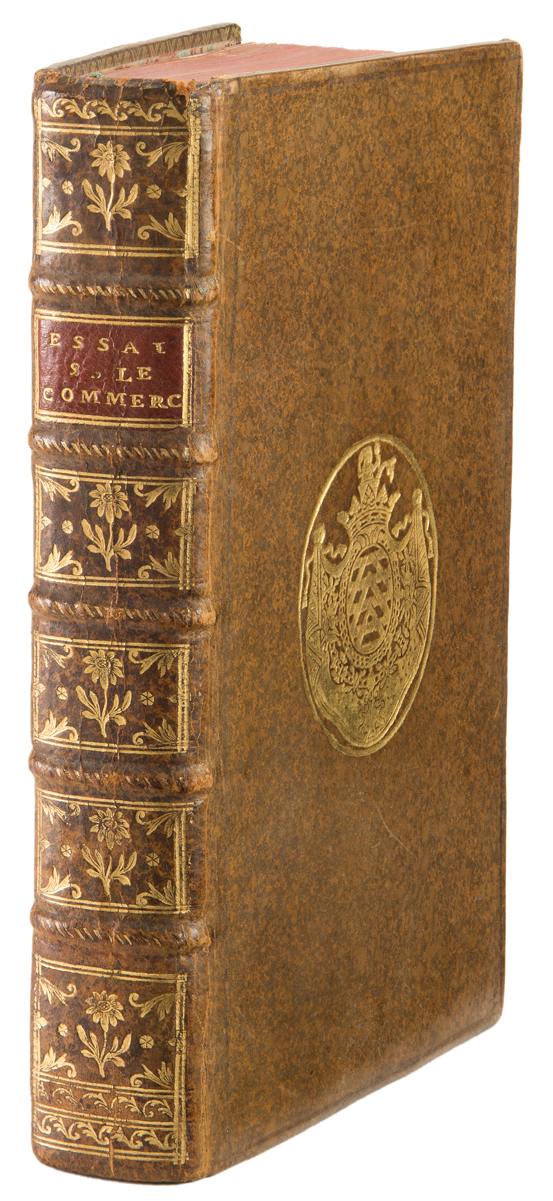Essai sur la Nature du Commerce en General, traduit de l’Anglois.
CANTILLON, RICHARD. Essai sur la Nature du Commerce en General, traduit de l’Anglois.
“Londres [Paris]: Fletcher Gyles”, 1755
Contemporary armorial calf, spine gilt, red morocco label. A few small spots. Fine.
First edition of the book that is, “more emphatically than any other single work, the cradle of political economy” (Jevons). Published posthumously, Cantillon’s Essay on the Nature of Trade in General was cited by Adam Smith, Condillac, Quesnay, Harris, Postlethwayt, and many others. It is “the most systematic treatment on economic principles before the Wealth of Nations” (Roll), and Cantillon is the “founding father of modern economics” (Rothbard).
Born in Ireland, Cantillon was active in banking in Paris for years. A man among boys in business, he made a fortune from John Law’s scheme. “Bankers fell like autumn leaves in Paris between 1717 and 1720, and as Higgs remarks, ‘Their losses were probably very heavy in 1720 and much of them went into Cantillon’s pocket’” (New Palgrave). He successfully defended himself in numerous lawsuits brought by victims of the Mississippi Bubble, but he eventually deemed it prudent to depart for England. In 1734 he was murdered by his recently-dismissed cook, who evidently robbed him and burned his house down, destroying his manuscripts among other things. While in Paris, Cantillon had written the Essai in English and translated it into French for a friend. That friend arranged for its publication more than two decades later in 1755.
Cantillon covers, in analysis far surpassing that of his contemporaries, currency, foreign exchanges, banking, credit, and the international specie flow mechanism (which Schumpeter hailed as “almost faultlessly described”). He made pioneering contributions to what was later known as the Malthusian theory of population, the theory of the allocation of surplus, and the distinction between market price and natural price as an integral part of an entire economic model. In the Essai Cantillon coined the term entrepreneur, which he observed “entails bearing the risk of buying at certain prices and selling at uncertain prices” (Cuervo).
This is a splendid copy of this founding work of modern economics.
Provenance: François-Alexandre, duc de la Rochefoucauld-Liancourt, with arms in gilt on boards and stamp on title.
#
$60,000



